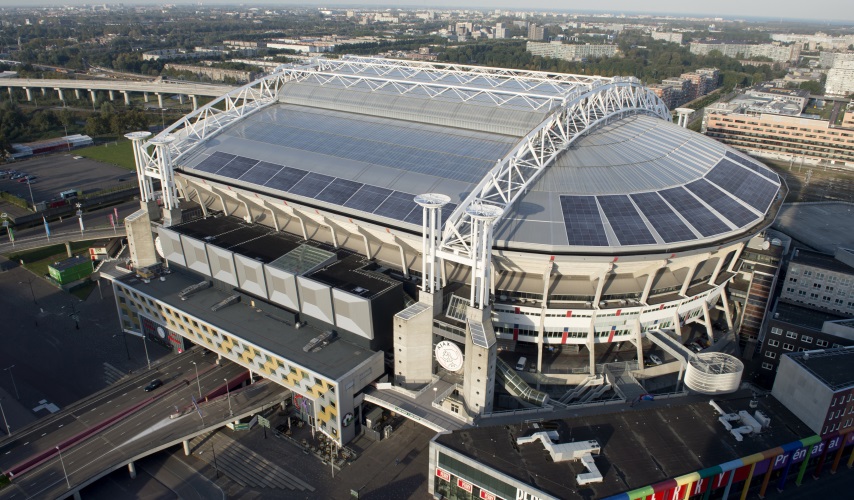
Energy costs often make up a significant portion of the budget. Is it time to look at alternative solutions to boost your business?
Back in 1993 SC Freiberg were the first reported club to install solar panels on their roof. But now nearly 30 years on and with energy prices rising – is it time for a new focus on solar energy in sport?
Mounting solar panels on or nearby stadiums is not the only way for venues to make themselves more sustainable.
As a result of a Power Purchase Agreement (PPA) with English investor giant Octopus Energy, Arsenal has become the first team in the Premier League to be 100% sustainable in their energy consumption.
In the UK, you have to go down to the lower tiers to find the clubs that are leading the field for sustainability, even though budgets are much tighter outside the Premier League.
In 2016, Bristol City renovated their stadium Ashton Gate and installed 460 solar panels on the roof: a move that was predicted to reduce the club’s carbon emissions by 20%, as well as cutting its energy costs by £150,000 over 20 years.
But it is League Two promotion chasers Forest Green Rovers who have been described as “the greenest club in the world” by football governing body FIFA.
They are living up to their reputation with bold plans to build a new wooden arena, which they say will be “the greenest stadium in the world”.
This is the latest step towards sustainability by the Gloucestershire club, owned by renewable energy entrepreneur Dale Vince. It claims to be 100% powered by renewable energy, some of which is generated by the 170 solar panels on the stadium roof.
The entire club is powered by 100% green energy electricity and carbon neutral gas from Ecotricity, some of which we generate ourselves with the solar panels on our stadium roof and the solar tracker at the ground entrance.
The grass they play on is sustainable, free from pesticides and herbicides, they cut the grass with a GPS-directed electric lawnmower.
Forest Green collect rainwater from beneath the pitch to use for pitch irrigation and have Electric vehicle (EV) charging points.
They are simply run from the sun.
At Solar in Sport, our mission is to lead the charge in creating a greener, more sustainable future for generations to come.
We are driven by the belief that sports can be a powerful catalyst for change.
Solar In Sport is here to inspire individuals and sporting communities to adopt renewable energy solutions and reduce their carbon footprint.

By using solar energy, sports clubs can reduce their carbon footprint and demonstrate their commitment to sustainability.
Additionally, solar panels can save sports clubs a significant amount of money on their energy bills.
This extra money can be reinvested back into the club, allowing for improvements to facilities, equipment, and programming.
